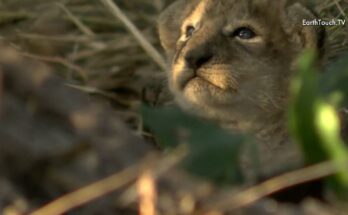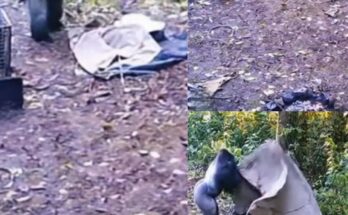
In the unforgiving world of the wild, strength often determines survival — not only for individuals but for their offspring. For a lioness, her cubs are everything. She nurtures them, teaches them, and fiercely protects them. But sometimes, even the most valiant mother can find herself powerless, forced to witness the unthinkable: the loss of her cub — and her inability to take revenge.
In many lion prides, when a new male takes over, he will kill the cubs of the previous leader to bring the lionesses back into estrus. This brutal behavior is part of nature’s cycle, but for the mother, it is sheer heartbreak. She watches helplessly as her cub is taken from her, unable to intervene against a much stronger opponent. Her roars echo in pain, not rage, as she is driven back — not by choice, but by necessity. To fight is to die. And death would leave her pride and any future cubs without protection.
This story plays out across the savannas of Africa countless times, a tragic reminder that nature, though majestic, is not always just. The lioness may be a symbol of power, but in moments like these, she is stripped of all control. She mourns in silence, pacing around the place where her cub once lay, eyes searching for what she already knows is gone.
Her revenge is not in blood, but in survival. She endures, she heals, and eventually, she brings new life into the world. Her strength is not in vengeance, but in resilience. The powerless lioness becomes powerful once again — not by conquering her enemies, but by continuing the fight to protect what remains.


